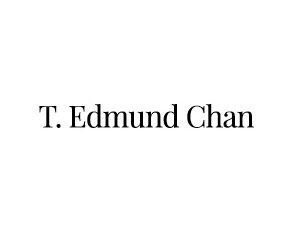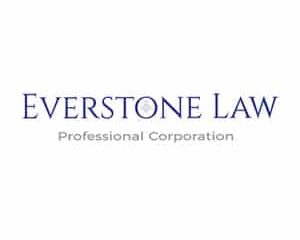What is Fraud Law in Canada?
Fraud is a serious criminal offense in Canada that can lead to severe legal consequences, including imprisonment, fines, and a permanent criminal record. Fraud law in Canada is designed to protect individuals, businesses, and government institutions from deceptive practices that result in financial or personal harm. This article explores the legal framework surrounding fraud in Canada, including its definition, types, penalties, defenses, and notable cases.
What Is Fraud Under Canadian Law?
Under the Criminal Code of Canada, fraud is defined as an intentional act of deception or dishonesty that results in a financial or personal loss to the victim. Section 380(1) of the Criminal Code states that fraud occurs when someone:
-
Deceives another person or entity through false representation, lies, or concealment of material facts.
-
Deprives the victim of money, property, or any valuable security (or puts these at risk).
-
Acts with intent to defraud, meaning the accused knowingly engaged in dishonest conduct.
Fraud can take many forms, from small-scale scams to large corporate fraud schemes. The severity of the offense depends on factors such as the amount of money involved, the vulnerability of the victim, and the complexity of the scheme.
Types of Fraud in Canada
Fraudulent activities in Canada can be categorized into several common types:
1. Financial Fraud
This involves deceptive practices aimed at obtaining money or assets unlawfully. Examples include:
-
Credit card fraud (using someone else’s card without permission)
-
Bank fraud (forging checks or manipulating accounts)
-
Securities fraud (insider trading or Ponzi schemes)
2. Identity Theft and Identity Fraud
Identity theft occurs when someone steals personal information (e.g., Social Insurance Numbers, bank details) to commit fraud. Identity fraud involves using that stolen information to:
-
Open fraudulent bank accounts
-
Obtain loans or credit cards
-
Commit tax fraud
3. Insurance Fraud
This occurs when individuals or businesses make false claims to insurance companies to receive payouts. Examples include:
-
Staging accidents for injury claims
-
Falsifying property damage reports
-
Exaggerating medical expenses
4. Government and Tax Fraud
Fraud against government programs includes:
-
Welfare fraud (lying about income to receive benefits)
-
Tax evasion (hiding income or falsifying deductions)
-
COVID-19 relief fraud (misusing CERB or other pandemic benefits)
5. Cyber Fraud
With the rise of digital transactions, cyber fraud has become increasingly common. Examples include:
-
Phishing scams (fake emails or websites tricking victims into revealing personal data)
-
Online auction fraud (selling non-existent goods)
-
Ransomware attacks (hackers demanding payment to restore data access)
6. Investment Fraud
Fraudulent investment schemes lure victims with promises of high returns. Common scams include:
-
Ponzi schemes (using new investors’ money to pay old investors)
-
Pump-and-dump stock fraud (artificially inflating stock prices before selling)
-
Cryptocurrency scams (fake ICOs or fraudulent exchanges)
Legal Consequences of Fraud in Canada
The penalties for fraud depend on whether the offense is prosecuted as summary conviction (less serious) or indictable offense (more serious).
1. Fraud Under $5,000
-
Summary conviction: Up to 2 years in prison and/or a fine.
-
Indictable offense: Up to 14 years in prison (rare for small amounts).
2. Fraud Over $5,000
-
Indictable offense: Maximum penalty of 14 years imprisonment.
Additional Consequences
-
Restitution orders (court may order the offender to repay victims)
-
Asset forfeiture (seizure of property obtained through fraud)
-
Criminal record, which affects employment, travel, and immigration status
Defenses Against Fraud Charges
If accused of fraud, a defendant may use several legal defenses, including:
-
Lack of Intent – Proving that there was no intention to deceive (e.g., an honest mistake).
-
No Actual Loss – Arguing that the alleged victim did not suffer a financial loss.
-
Duress or Coercion – Claiming that the accused was forced to commit fraud under threat.
-
Entrapment – Arguing that law enforcement induced the crime.
-
Mistaken Identity – Proving that the accused was wrongly identified as the perpetrator.
A skilled criminal defense lawyer can help build a strong case to reduce or dismiss charges.
Notable Fraud Cases in Canada
Several high-profile fraud cases have shaped Canadian fraud law:
1. The Bernie Madoff of Canada: Earl Jones (2009)
-
A Montreal financial advisor who ran a $50 million Ponzi scheme, defrauding elderly investors.
-
Sentenced to 11 years in prison.
2. The Bre-X Scandal (1997)
-
A gold mining company falsified reports about gold deposits in Indonesia, leading to billions in investor losses.
-
Although key figures escaped prosecution due to lack of evidence, this case led to stricter securities regulations.
3. The Sponsorship Scandal (2004)
-
A political scandal involving misuse of government funds in Quebec.
-
Led to public inquiries and reforms in federal accountability laws.
How to Protect Yourself from Fraud
Given the serious consequences of fraud, individuals and businesses should take precautions:
-
Verify financial transactions before sending money.
-
Monitor credit reports for unauthorized activity.
-
Use strong passwords and enable two-factor authentication.
-
Be cautious of “too good to be true” offers (e.g., lottery scams, fake investments).
-
Report suspected fraud to the Canadian Anti-Fraud Centre (CAFC) or local police.
Conclusion
Fraud law in Canada is a critical component of the justice system, protecting individuals and institutions from financial crimes. Whether through identity theft, investment scams, or corporate fraud, deceptive practices carry severe penalties. Understanding the legal framework, recognizing common fraud schemes, and knowing your rights can help you avoid becoming a victim—or an unwitting participant—in fraudulent activities. If accused of fraud, seeking legal counsel is essential to navigating the complexities of Canadian criminal law.






















